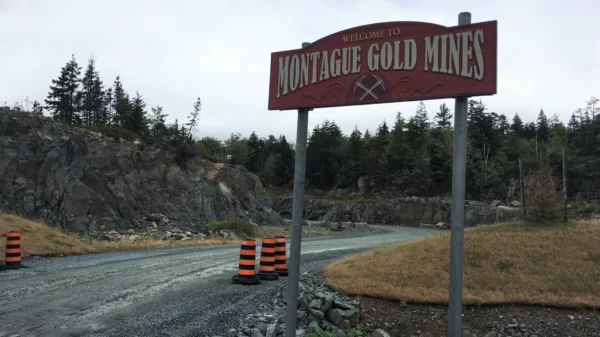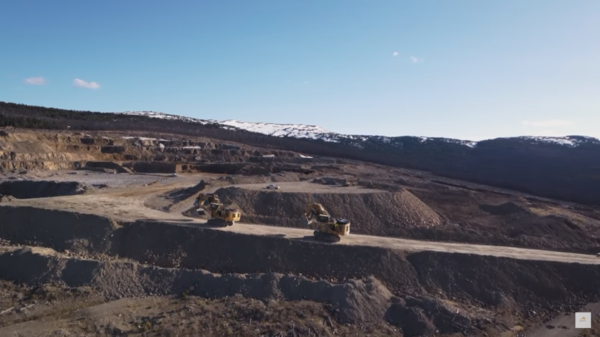The Manitoba government is spending $100,000 from its criminal property forfeiture fund to bring high-speed internet service to several northern First Nations.
The government said in a press release on Tuesday that Starlink technology will remotely connect residents and vulnerable youth to Manitoba Keewatinowi Okimakanak (MKO) Youth Healing Lodge services.
By leveraging advanced satellite technology, Starlink seeks to offer reliable internet connectivity to remote and underserved areas, as well as improving internet access in urban and suburban regions.
“Through CPF funding, we are able to connect remote MKO residents to virtual court appearances, victims’ services, crisis responders, Missing and Murdered Indigenous Women and Girls teams and other community supports,” said Justice Minister Kelvin Goertzen.
“We are also able to provide the broader community with accessibility and connectivity to education, training and programming that is essential to building long-term approaches to reducing crime and promoting public safety.”
Additionally, First Nations safety officers will utilize these systems to establish connections with other policing agencies, facilitating more efficient electronic transfer of information, evidence and intelligence to all participants in the justice system.
“The collaboration with Justice Canada and Manitoba Justice will bring significant advantages to the MKO communities,” said Grand Chief Garrison Settee of the Manitoba Keewatinowi Okimakanak.
He emphasized the long-standing need for reliable internet access in northern First Nations. The initiative opens up opportunities for various virtual services, including medical consultations, court procedures, education and training.
Read more: Rogers partners with Space X, Lynk Global to bring satellite-to-phone coverage nationwide
Read more: Xplore leverages ongoing satellite deal with EchoStar to combat digital divide in Canada
Internet connection benefits evident in days
This effort represents a genuine step towards cooperative action and addressing the Truth and Reconciliation Calls to Action, according to Chief Settee. The implementation of the system is swift, and the benefits are expected to be evident within days rather than years.
First Nations safety officers will utilize these systems to establish connections with other policing agencies, enabling more efficient electronic transfer of information, evidence and intelligence to participants in the justice system.
Starlink is a satellite internet constellation project developed by SpaceX, with the aim of providing high-speed, low-latency internet access to users around the world.
It involves deploying a large network of small satellites in low Earth orbit to create a global internet infrastructure. These satellites are designed to communicate with ground stations and user terminals, commonly known as “Starlink dishes,” which are installed at the users’ locations.
In Manitoba, the Criminal Property Forfeiture (CPF) Fund serves as the repository for cash and proceeds obtained from the sale of forfeited property. This fund ensures that victims of the unlawful activities leading to property forfeiture receive compensation.
Additionally, The CPF Fund provides essential financial support to Victim Services, assisting those affected by crime. It also fosters safer communities by investing in specialized equipment and training for law enforcement agencies, bolstering their capacity to handle crime effectively.
Starlink systems will be place in eight MKO First Nations communities and youth centre, including:
- Misipawistik Cree Nation, Grand Rapids;
- Chemawawin Cree Nation, Easterville;
- Mathias Colomb Cree Nation, Pukatawagan;
- Mosakahiken Cree Nation, Moose Lake;
- Bunibonibee Cree Nation, Oxford House;
- Northlands Denesuline First Nation, Lac Brochet,
- Shamattawa First Nation;
- Tataskweyak Cree Nation, Split Lake;
- MKO Youth Healing Lodge.
Since its inception in 2011, the CPF Fund has successfully distributed over $26 million to support law enforcement agencies and community-focused projects, making a significant positive impact across the region.
Read more: Rogers Communications latest acquisition helps with 5G rollout on Toronto subway
Read more: Competition Tribunal rules in favour of Rogers and Shaw telecommunications merger
Starlink helping to close digital divide in Canada
In April, Starlink partnered with Rogers Communications Inc. (TSX: RCI.A, RCI.B) (NYSE: RCI) to bring satellite-to-phone coverage nationwide and close the digital divide in remote areas.
The digital divide refers to the gap or disparity between those who have access to and effectively use information and communication technologies, such as the internet and digital devices, and those who do not have such access or lack the skills to utilize them fully.
According to Statistics Canada, from 2018 to 2020, the proportion of Canadians categorized as non-users or basic users of the internet decreased by nearly 5 percentage points, going from 23.8 per cent to 18.9 per cent.
This shift represented a movement of approximately 1.4 million Canadians from the ‘have-not’ side to the ‘have’ side of the digital divide. Concurrently, the share of Canadians identified as Advanced users increased by over 4 percentage points, reaching 36.7 per cent in 2020.
.














